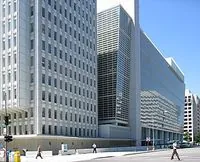Asian Markets Surge on Strong U.S. Jobs Data; Japan's Economic Outlook in Focus
Asian stock markets rally following robust U.S. employment figures. Japan's new Prime Minister outlines economic policies as Nintendo stock soars. Chinese markets prepare to reopen with anticipated stimulus measures.

Asian stock markets experienced a significant upturn on Monday, October 7, 2024, propelled by unexpectedly robust U.S. employment data that bolstered economic optimism. The positive sentiment echoed the recent rally on Wall Street, although U.S. futures and oil prices showed a slight decline.
Japan's Nikkei 225, the country's leading stock market index, surged 1.8% to 39,332.74. This increase was partly attributed to the weakening of the yen against the U.S. dollar. The Japanese currency has been fluctuating due to speculation about the Bank of Japan's interest rate plans following Prime Minister Shigeru Ishiba's recent appointment. Lower interest rates typically boost asset prices, including stocks.
Nintendo, the renowned Japanese multinational consumer electronics and video game company, saw its stock price jump 5% amid reports that Saudi Arabia's Public Investment Fund was considering increasing its stake in the Kyoto-based firm.

In a policy address delivered on Friday, October 4, Prime Minister Ishiba outlined his economic vision, emphasizing the need for wage increases that outpace inflation and promoting investment to foster "a virtuous cycle of growth and distribution." He pledged support for low-income households and measures to revitalize regional economies and enhance disaster resilience. However, the absence of major new initiatives and relatively low initial public support ratings of around 50% or less have raised some concerns.
Ishiba plans to dissolve parliament on Wednesday, October 9, paving the way for an election scheduled for October 27, 2024. This move comes as the Liberal Democratic Party (LDP), Japan's dominant political party since 1955, seeks to solidify its position.
Elsewhere in Asia, Hong Kong's Hang Seng index rose 1.1% to 22,977.97, while South Korea's KOSPI surged 1.3% to 2,602.23. Taiwan's TAIEX also showed strong performance, gaining 1.8%.
Mainland Chinese markets are set to reopen on Tuesday, October 8, following a week-long holiday. The government has announced plans to detail economic stimulus measures at a morning news conference in Beijing. Prior to the October 1 National Day holiday, announcements of policies aimed at revitalizing the struggling property market had already pushed share benchmarks sharply higher, suggesting the possibility of increased market volatility in the coming days.
In the United States, the S&P 500 climbed 0.9% on Friday, October 4, nearing its all-time high set earlier that week. The Dow Jones Industrial Average gained 0.8%, while the NASDAQ climbed 1.2%. Banks, airlines, cruise-ship operators, and other companies that benefit from a robust economy led the gains. Norwegian Cruise Line saw a 4.9% increase, while JPMorgan Chase rose 3.5%.
The strong performance of U.S. markets was largely driven by the latest employment report from the U.S. Bureau of Labor Statistics, which revealed that employers added 254,000 more jobs than expected in September. This data has raised hopes that the job market will remain resilient despite the Federal Reserve's efforts to cool the economy through higher interest rates.
"The robust job market and steady economic growth demonstrate the resilience of the American economy. We remain committed to fostering sustainable growth while addressing inflationary pressures."
While economic optimism prevails, concerns over tensions in the Middle East continue to cast a shadow over global markets. The world awaits Israel's response to the missile attack by Iran on October 1, 2024, which has contributed to recent volatility in oil prices.
As of early Monday, October 7, U.S. benchmark crude oil was trading at $74.19 per barrel, while Brent Crude, the international standard, stood at $77.76 per barrel.
The strong U.S. jobs report has led traders to revise their expectations regarding future Federal Reserve interest rate cuts. The likelihood of another half-point rate reduction before the end of 2024 has diminished, following the most recent cut in September.
In currency markets, the euro remained stable at $1.0967 against the U.S. dollar, reflecting the complex interplay of global economic factors and monetary policies.


































